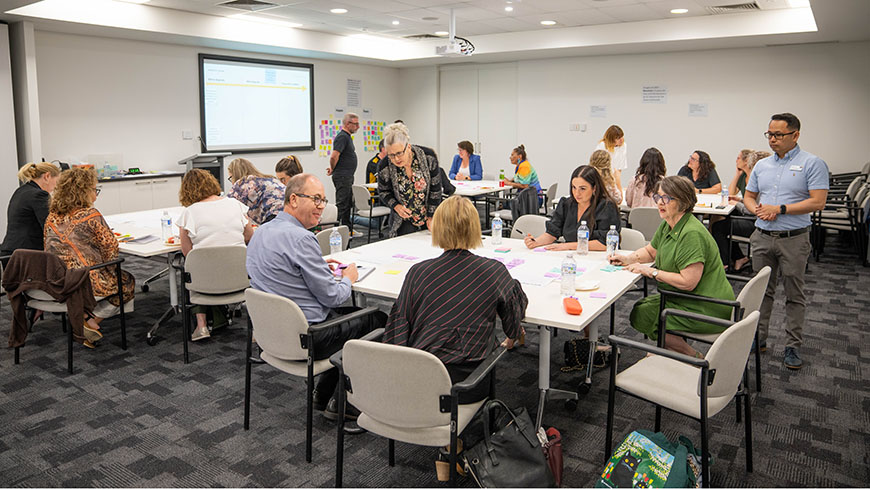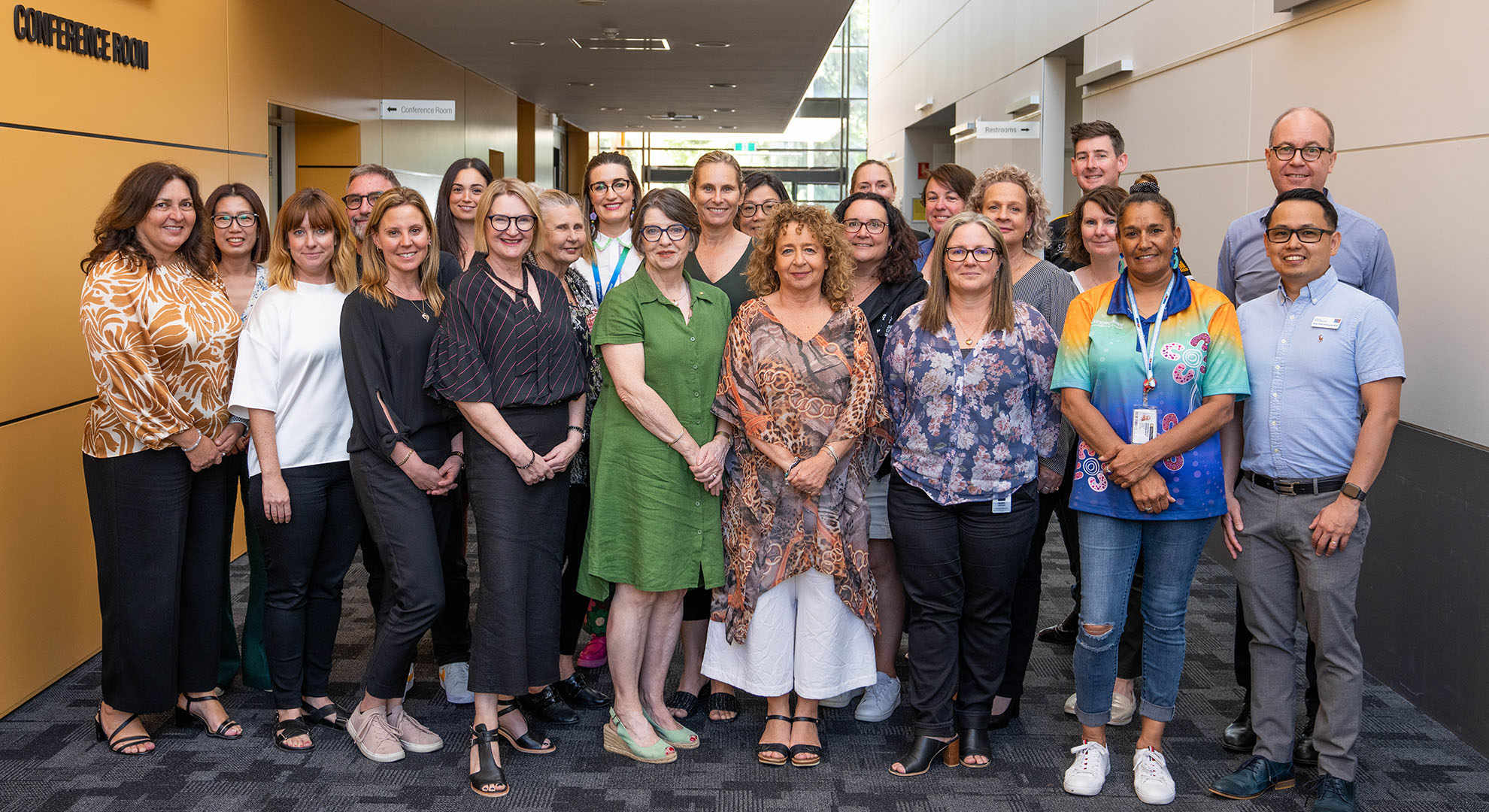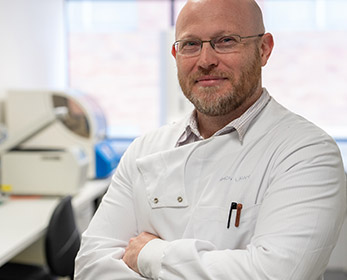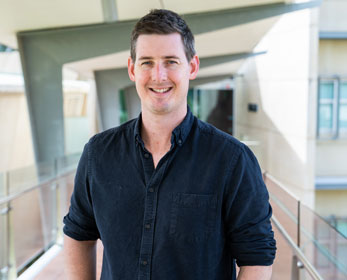CEOs from more than 15 neurological not-for-profit organisations have united to help improve the health and research landscape for Western Australians living with neurological conditions.
Their valuable insights shared at a workshop this week will help shape the content, features and positioning of the WA NeuroHub, a new research project from Edith Cowan University (ECU), Perron Institute, and Anthologie.
The WA NeuroHub aims to bring important information to one place for people with lived experience of neurological conditions, health professionals, not-for-profit organisations, researchers and industry.
There are more than 600 different neurological disorders, which when combined are in the top five Burden of Disease groups for both fatal and non-fatal disease groups in WA.
ECU Centre for Precision Health Director Professor Simon Laws said the vast number of different conditions have contributed to many challenges and gaps in providing care and services for people with neurological disorders, however many of these conditions share common symptoms, care needs and treatments.
"The WA NeuroHub project aims to create an up-to-date service directory which changes in real time to enable patients to find clinicians with reduced waiting periods faster, while a constantly updated research registry is intended to display current projects and studies taking place in WA and offer the opportunity to share information," he said.
Multiple Sclerosis WA (MSWA) and MS Australia have contributed funding to the project, while collaborators include not-for-profit partners Synapse, Stroke Foundation, Huntington's WA, Parkinson's WA, Neurological Council of WA, community support groups The Kings Park Warriors, FND Hope, MS & All Neurological Conditions Perth, and health partners State Head Injury Unit and Neurosciences Unit.
Developed with the input of key players
If funded, the online health and research platform will be designed with input from key stakeholders such as people with lived experience of neurological conditions, health professionals, not-for-profit organisations, researchers and industry.
The first workshops have gained valuable insights from more than 60 carers and people with living with neurological conditions such as Parkinson’s disease, Huntington's disease, multiple sclerosis, brain injury, functional neurological disorder, epilepsy, neuromuscular conditions etc.
Their top three desires for the platform were information and resources, accessibility and usability, and connection and community.
ECU Centre for Precision Health Research Fellow Dr Travis Cruickshank said CEOs from not-for-profit neurological organisations supported the development of the WA NeuroHub and saw it as a technology to help them optimise their service delivery and support people with a neurological condition.
"It is very unique to see this level of collaboration from all the stakeholders in the neurological community who have been traditionally siloed," he said.
"There is real hope that we can secure the funds to develop this platform if we work together."
Dr Cruickshank said co-designing the workshops will help to ensure that the prospective platform will meet the needs of neurological stakeholders in WA.
"We want to optimise the health and research experience for people living with a neurological condition," he said.
"It is a wicked problem that requires perspectives from a broad array of stakeholders in order to solve it."
Further workshops with health professionals and researchers are planned for later in the year.
 CEOs from neurological not-for-profit organisations have provided their valuable insights for the WA NeuroHub project.
CEOs from neurological not-for-profit organisations have provided their valuable insights for the WA NeuroHub project.

 CEOs from neurological not-for-profit organisations have provided their valuable insights for the WA NeuroHub project.
CEOs from neurological not-for-profit organisations have provided their valuable insights for the WA NeuroHub project.




